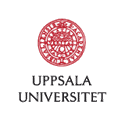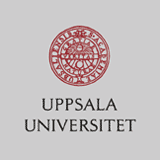Avancerad läkemedelskemi, 5 hp
| Kursnummer | 3FMF0075 |
| År | 2023 |
| Typ | Subjectcourse |
| Spår | Drug development, |
| Max antal deltagare | 25 |
| Sista ansökningsdag | 2023-10-27 |
| Språk | En |
| Kursansvarig | Ulrika Rosenström |
| Institution | Institutionen för Läkemedelskemi |
| Besöksadress | Husargatan 3 |
| Postadress | Box 574, BMC, 751 23 Uppsala |
| Datum | 2023-11-06 - 2024-02-09 |
| Lokal | BMC |
| Kurslängd | |
| Kursrapport | |
| Kursplan | Kursplan |
Beskrivning
Kursen har sitt fokus kring läkemedelskemi på en avancerad nivå, mer specifikt på design av molekyler som har aktivitet mot olika makromolekylära måltavlor som receptorer och enzymer. Modifiering och optimering av den kemiska strukturen för att optimera farmakodynamiska (PD) och farmakokinetiska (PK) egenskaper studeras på djupet. Detta inkluderar också generell analys av fysikalisk-kemiska egenskaper, farmakoforer och struktur-effektsamband. Även de olika faserna i ett läkemedelsutvecklingsprojekt diskuteras, bl. a. identifikation och validering av läkemedelsmåltavla, identifiering och optimering av aktiv substans samt ADMET (Absorption, Distribution, Metabolism, Excretion, and Toxicitet) egenskaper för substanser in vitro och in vivo.
Inlärningsmål
Efter fullgjord kurs ska studenten kunna:
• Redogöra för grundläggande principer inom läkemedelskemi, inklusive val av läkemedelsmåltavla, administreringssätt och generering av startpunkter
• Bedöma fysikalisk-kemiska egenskaper för läkemedelskandidater och genom läkemedelsdesign optimera molekylers egenskaper i relation till måltavla, biotillgänglighet, metabolism, elimination och toxicitet
• Förklara de olika faserna i läkemedelsutveckling och analysera behovet av läkemedelskemi i de olika faserna
• Redogöra för beslutspunkter i processen från hit/lead till läkemedelskandidat.
• Identifiera vanliga läkemedelsklasser utifrån strukturtyp
Innehåll
Kursen kommer ges i form av föreläsningar, diskussionsseminarier, workshops och projektarbete med tillhörande redovisningar
Undervisning
Kunskaper kring organiska molekyler och deras kemiska struktur är en förutsättning för att kunna ta till sig kursinnehållet
Examination
Kursen examineras kontinuerligt genom aktivt deltagande i diskussionsseminarier och workshops samt genom ett projektarbete som examineras muntligt
Litteratur
Aktuella vetenskapliga artiklar och litteratur enligt särskild anvisning
Lärare
Ulrika Rosenström
Anders Hallberg
Ulrika Yngve
Johan Wannberg
Anja Sandström
Ulf Bremberg
Ylva Gravenfors
mfl


